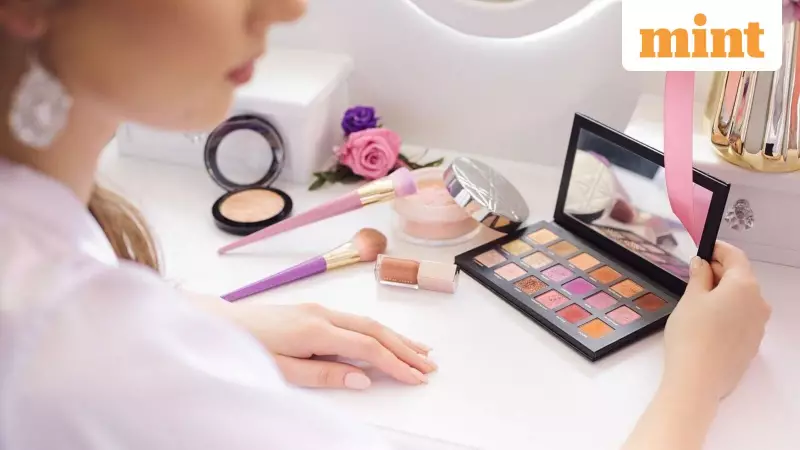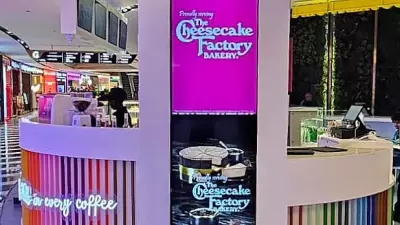
India's beauty and personal care industry is undergoing a dramatic transformation, moving away from its mass-market roots toward premium and luxury offerings. This strategic pivot comes as brands face intense competition, rising customer acquisition costs, and shrinking margins in the crowded value segment.
The Premiumisation Push: A Survival Strategy
What was once a landscape dominated by broad-based, affordable products is now seeing a surge of direct-to-consumer (D2C) players launching high-end lines. This shift is not merely about chasing higher profits; it represents an urgent need for differentiation in a market saturated with similar products and aggressive discounting.
Facing fierce competition, rising customer acquisition costs, and product similarities in the mass market, Indian beauty brands are launching ultra-premium or prestige lines. This move allows them to stand out through globally sourced ingredients, innovative packaging, and sophisticated brand positioning.
Key Players Driving the Luxury Shift
Several major Indian brands are leading this charge upmarket. Earlier this month, Mamaearth parent Honasa Consumer Ltd launched Lumineve, a nighttime skincare brand positioned in the prestige category, in partnership with Nykaa.
Honasa's CEO Varun Alagh highlighted the significant opportunity during the September quarter earnings call last week, stating, "We believe over the next decade, prestige skin care itself will be like a $4 billion opportunity. And as an organisation, it's important that we participate in it as well as build capability."
Honasa joins other digital-first companies like Deepika Padukone-led 82°E, HUL's Minimalist, and Unilever-backed RAS Luxury Skincare in offering more science-led products for consumers seeking better results over quantity.
Nykaa's Role in Accelerating Luxury Access
Beauty retailer Nykaa is playing a crucial role in this premiumisation wave. The company highlighted its September quarter for international brand additions, including Swiss luxury skincare La Prairie and Italian cosmetics Prada Beauty, noting increased shopper interest.
Anchit Nayar, Nykaa's beauty CEO, revealed an innovative approach during the Q2 earnings call: "One thing we did not foresee in the early days was that we have the ability to sell luxury products by enabling our retail stores to become hyperlocal delivery hubs and do it in a cost-effective manner." The company now plans quicker delivery for its luxury range.
Consumer Behavior: Informed Upgrading, Not Indulgence
The consumer shift driving this trend is characterized as 'informed upgrading' rather than mere indulgence. Customers are asking tougher questions before purchasing and showing willingness to pay more for sophisticated formulations that deliver visible results.
RAS Luxury Skincare, an 8-year-old Mumbai brand using premium ingredients like 24 karat gold and pomegranate oil, has seen its average order value exceed ₹2,000. Co-founder Suramya Jain told Mint, "What we're seeing is not indulgence but informed upgrading, and customers are asking tougher questions before they buy."
Similarly, A91 Partners-funded Plum Goodness is expanding its range of face serums and toners containing specialized ingredients like niacinamide, retinol, and ceramides. Founder Shankar Prasad explained, "Niacinamide products are top-selling in our premium range currently. The prices tend to be slightly higher because the ingredients are costly and the product requires different formulation processes." Plum's active ingredient range starts at ₹510 and goes up to ₹1,800.
Market Growth and Investment Landscape
The broader context for this premiumisation trend is India's rapidly expanding beauty market. According to Nykaa's beauty trends report from last year, India's beauty and personal care market is expected to grow from $21 billion in 2024 to touch $34 billion in the next four years, making it the fastest-growing in the world.
This expanding market and low barriers have attracted significant investment. About $2.4 billion has been raised over the last five years, according to Venture Intelligence, showing strong investor confidence in the sector.
The Road Ahead: Challenges and Opportunities
Industry experts note that this push into premium is as much about survival as aspiration. Rahul Chowdhri, partner at Stellaris Venture Partners, explained, "Premiumisation is being driven by the need to expand the category and grow the overall business. Premium and luxury markets are smaller today, but five years out, they could be large, which is why brands are starting now."
He added that for most players, "this is not their first brand, and often it's their fifth. They need new revenue pools, so moving into premium becomes obvious." However, building luxury brands presents significant challenges, requiring substantial brand expenditure or large celebrity endorsements while maintaining an aura of exclusivity.
As the Indian beauty market continues its rapid expansion, the race upmarket represents a strategic evolution for brands seeking to differentiate themselves, capture consumer loyalty, and secure healthier margins in an increasingly competitive landscape.





